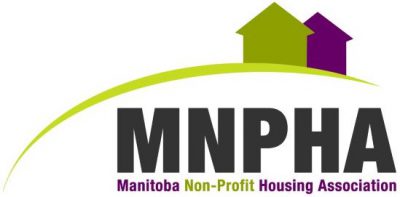2022 Federal Budget Focuses on Housing but funding for non-profit affordable housing renewal and development may remain elusive in Manitoba
The 2022 federal budget has been called a ‘housing budget’ because, despite a withdrawal of funding commitments in other areas due to a ‘back-to-basics’ approach to budgets to reduce the deficit, the government has maintained many commitments it made to housing in the election platform. One commitment, to the development of an Urban, Rural, and Northern Indigenous Housing Strategy, is included in the budget. The amount, however, is only $300m over five years, despite the Parliamentary Budget Officer reporting that a strategy to bring Indigenous housing outcomes up to an equitable level with non-Indigenous people would cost $1.9b per year. That means the investment is equal to about 3% of the need.
The most significant budget item that has supported new non-profit housing aimed at Manitobans at risk of and experiencing homelessness is a renewal of the Rapid Housing Initiative, with an investment of $1.5b over the next two years.
Other budget items that will impact non-profit housing in the year ahead include:
New Initiatives
- $4 billion for a Municipal Accelerator Fund that will expedite municipal approval processes for affordable housing
- $18.1 million will be provided over three years, starting in 2022-23, to conduct research about what further measures could contribute to eliminating chronic homelessness.
- $62.2 million will be provided over three years, starting in 2024-25, to launch a new Veteran Homelessness Program in partnership with community organizations that will provide services and rent supplements to veterans experiencing homelessness.
Expanded/Maintained Commitments to Existing Initiatives
- $4 billion over 7 years to augment the distinctions-based strategies for First Nations, Inuit and Metis housing
- $475 million to increase payments one time through the Canada Housing Benefit. This will be a one-time payment of $500 for individuals in housing need
- $562 million over 2 years for the Reaching Home program. This will maintain the program at the 2020 and 2021 annual funding level for at least two years
- $2.9 billion of existing funding under the National Co-investment Fund will be expedited by 2 years, making the grant ratio higher and speeding up approval processes
- $500 million to be reallocated under the National Co-investment Fund to target development of co-op housing
Energy Retrofits Funding and Support
- A number of energy retrofit programs to reduce the sector’s environmental footprint. This includes:
- $458.5 million in loans and grants for low income housing providers under the Canada Greener Homes Loan program
- $200 million over five years, starting in 2022-23, for the Deep Retrofit Accelerator Initiative, to provide support for retrofit audits and project management for large projects to accelerate the pace of deep retrofits in Canada, with a focus on low-income affordable housing
- $183.2 million will be allocated over seven years, starting in 2022-23, to conduct research and development on innovative construction materials and to revitalize national housing and building standards to encourage low-carbon construction solutions
You can read more about the budget, and MNPHA’s reaction to it, in this Winnipeg Free Press article that addresses the housing market. Christina Maes Nino says “The amount that they’ve added to the budget is still not enough to affect core housing need in Manitoba, in any serious way”. The article describes that MNPHA as happy to see increases to Ottawa’s funding for co-operative housing, and to see incentives for municipalities to get housing built, which could work if targeted toward affordable rental units.
Christina is also quoted in this Free Press article about the Indigenous housing crisis, saying “I am shocked at how little they’ve invested. The urban, rural, northern Indigenous housing strategy is the biggest gap, and the most shameful gap, in the budget.”
Other budget reactions and resources include:
Canadian Housing and Renewal Association welcomes housing focus but raises concerns over specific measures, notably urban Indigenous housing:https://chra-achru.ca/news/chras-reaction-to-the-2022-federal-budget/
Cooperative Housing Federation of Canada: Federal budget prioritizes housing: $1.5B sets the stage to build the next generation of co-op housing:https://chfcanada.coop/budget2022/
ONPHA’s initial response: 2022 federal budget:https://chfcanada.coop/budget2022/
BCNPHA 2022 Federal budget analysis: Many hits and a few misses:https://bcnpha.ca/2022-federal-budget-analysis/
Community Housing Transformation Centre Federal Budget analysis: https://centre.support/2022-federal-budget-in-the-eyes-of-the-centre/

Recent Comments